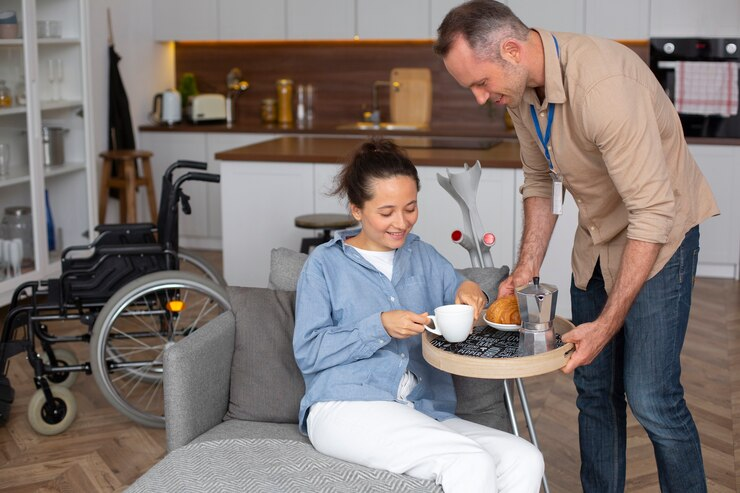When seeking care for a loved one, reliability and compassion are paramount. Finding a care provider who meets these criteria can make all the difference in the quality of care. Here’s how to navigate this important task with confidence.
Understanding Respite In-Home Care
Respite In-home care provides temporary relief for primary caregivers. It allows family members to take a break while ensuring their loved one receives professional care. This type of care is invaluable when you need time to recharge or manage other responsibilities.
A reputable respite care provider should offer flexibility in scheduling. This allows caregivers to choose times that best fit their needs. Look for agencies that provide personalized care plans tailored to the specific needs of your loved one. It’s essential that the caregivers are trained to handle various medical and personal needs with sensitivity and skill.
Choosing the Right Caregiver Agency
Selecting a caregiver agency involves several crucial steps. Start by researching agencies in your area. Look for those with strong reputations and positive reviews from clients. The agency should offer comprehensive services, including background checks and ongoing training for their staff.
Inquire about the agency’s vetting process. How do they ensure their caregivers are trustworthy and capable? Ask about their procedures for matching caregivers with clients. The goal is to find an agency that prioritizes both professional qualifications and personal compatibility.
Evaluating Caregiver Qualifications
Caregiver qualifications are a key factor in providing high-quality care. Look for caregivers who are certified and experienced in their field. They should have a solid understanding of medical and personal care needs. However, qualifications alone aren’t enough. Compassion and empathy are equally important.
Ask for references or testimonials from previous clients. This will give you a clearer picture of how the caregiver interacts with those they care for. A good caregiver should not only be skilled but also genuinely interested in the well-being of your loved one.
Conducting Interviews and Assessments
Once you have a shortlist of potential caregivers, schedule interviews. This is your chance to assess their interpersonal skills and understanding of care needs. Ask specific questions about their experience with similar cases. Pay attention to their responses and how they handle your questions.
During the interview, discuss your loved one’s routine and preferences. A caregiver should be willing to adapt to these needs and show enthusiasm for providing care. Assess their communication skills and ability to build a rapport. This is crucial for ensuring a positive caregiving experience.
Checking for Compatibility and Support
Compatibility between your loved one and the caregiver is essential. Observe how they interact and whether there is a natural rapport. It’s important that your loved one feels comfortable and safe with the caregiver.
Additionally, ensure that the caregiver agency provides adequate support. This includes regular check-ins to address any concerns and adjust the care plan as needed. A reliable agency will be responsive and willing to make changes to better meet the needs of your loved one.
Conclusion
Finding reliable and compassionate care providers requires thorough research and careful consideration. Focus on respite in-home care options and choose a caregiver agency with a strong reputation. Evaluate caregiver qualifications and conduct detailed interviews to ensure compatibility. By taking these steps, you can provide your loved one with the care and support they deserve.

